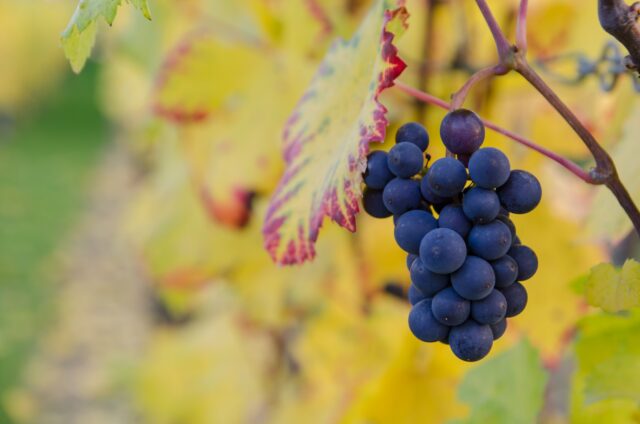From September 15th An innovative smartphone app developed in Australia that uses artificial intelligence to make it easier for wine grape growers to diagnose malnutrition in grapes, will grow following a new commercialization agreement.
 A prototype app to evaluate images of vine leaf symptoms captured using a standard smartphone camera is a funded research partnership between the NSW Directorate for Primary Industries (NSW DPI) and Charles Sturt University. Developed by a team of viticulturalists, plant physiologists, and machine learning experts. From Wine Australia.
A prototype app to evaluate images of vine leaf symptoms captured using a standard smartphone camera is a funded research partnership between the NSW Directorate for Primary Industries (NSW DPI) and Charles Sturt University. Developed by a team of viticulturalists, plant physiologists, and machine learning experts. From Wine Australia.
Global agtech start-up Deep Planet has granted an exclusive license to the technology with the aim of adding its capabilities and commercializing the technology to further benefit grape and wine producers. Got.
Deep Planet CEO David Carter is excited about the potential to take this technology and add it to the suite of viticulture remote sensing, monitoring and forecasting capabilities offered by the industry-leading VineSignal platform.
“We are working closely with many Australian growers to use satellite imagery combined with machine learning and AI capabilities to help them manage grape health, irrigation, yield and maturity. Adding and improving this technology as a practical tool for nutrition monitoring in the field is an obvious next step to enhance the impact we can offer our clients,” Carter said.
Grape nutrition is a significant cost to vineyard management and can reduce yield and quality if not treated properly. The prototype app was developed as a technical solution for wine grape growers to address the flurry of symptoms caused by malnutrition in grapes.
Prof. Michael Friend, Charles Sturt Pro Vice-Chancellor (Research and Innovation), said that the university’s image analysis experts, including Associate Prof. Lihong Zeng and Prof. Manoranjan Paul, collaborated with NSW DPI researchers to develop artificial intelligence for grape growing. He said he developed a disease image library for tree evaluation. field.
“The app’s detection and diagnostic capabilities work through image analysis algorithms developed by the team, allowing users to quickly identify nutritional deficiencies in grapes and access corrective action based on the diagnosis,” said Professor Friend. says.
Dr Adrian Zamit, Deputy Director of NSW DPI, said commercialization of research through agreement between government, industry and business would help farmers meet practical challenges.
“It is heartening to see these research institutes working with global agtech companies and jointly recognizing the value of this important joint research project,” said Dr. Zamit.
“NSW DPI is committed to understanding and researching the challenges of our agricultural sector and ultimately delivering actionable results that add competence and competitiveness to farm gates.”


